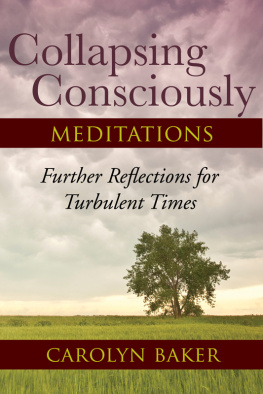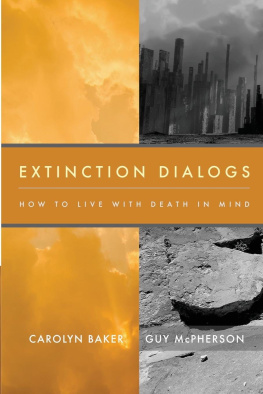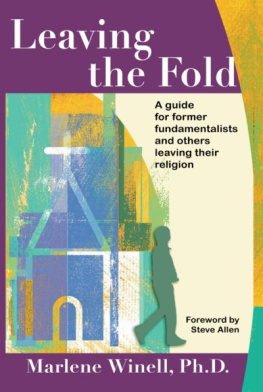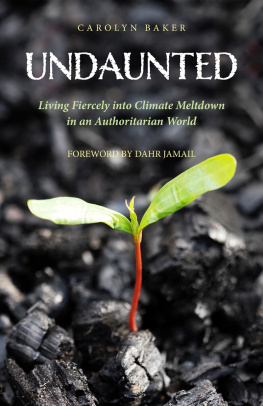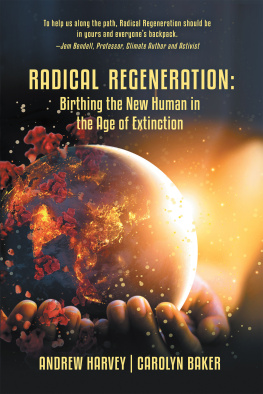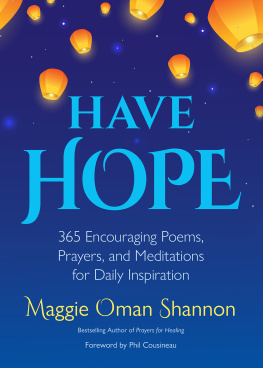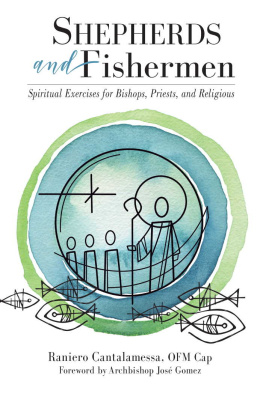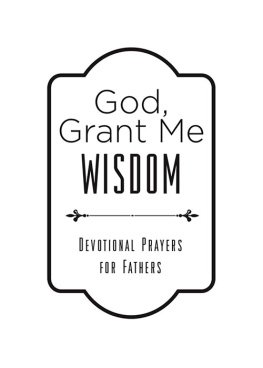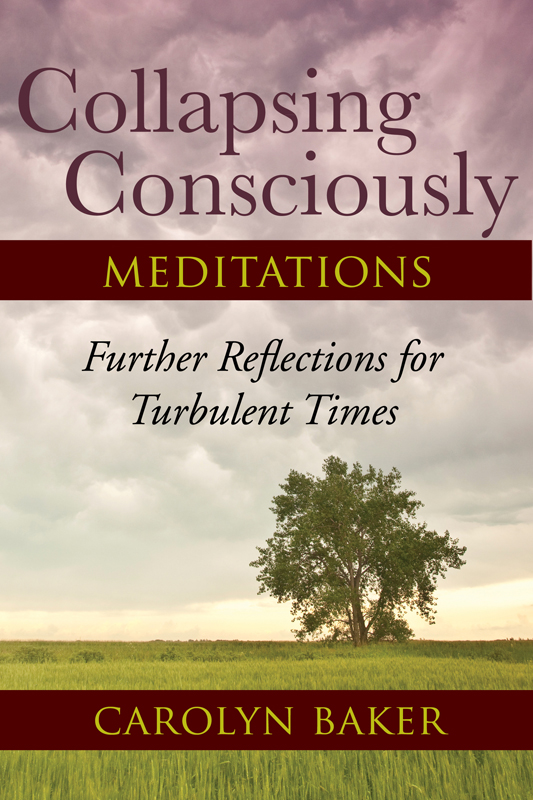
Collapsing Consciously Meditations
Also by Carolyn Baker
Reclaiming the Dark Feminine: The Price of Desire
The Journey of Forgiveness: Fulfilling the Healing Process
U.S. History Uncensored: What Your High School Textbook Didnt Tell You
Coming Out of Fundamentalist Christianity: An Autobiography Affirming Sensuality, Social Justice, and the Sacred )
Sacred Demise: Walking the Spiritual Path of Industrial Civilizations Collapse
Navigating the Coming Chaos: A Handbook for Inner Transition
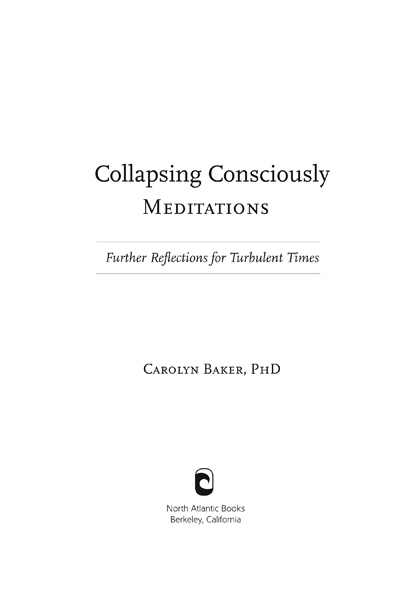
Copyright 2013 by Carolyn Baker. All rights reserved. No portion of this book, except for brief reviews, may be reproduced, stored in a retrieval system, or transmitted in any form or by any meanselectronic, mechanical, photocopying, recording, or otherwisewithout the written permission of the publisher. For information contact North Atlantic Books.
Published by North Atlantic Books P.O. Box 12327 Berkeley, California 94712
Cover art iStockphoto.com/ImagineGolf Cover design by Mary Ann Casler Printed in the United States of America
The poem Constant, which appears at the end of this book, is reprinted by permission from Rebecca del Rio.
Collapsing Consciously Meditations: Further Reflections for Turbulent Times is sponsored by the Society for the Study of Native Arts and Sciences, a nonprofit educational corporation whose goals are to develop an educational and cross-cultural perspective linking various scientific, social, and artistic fields; to nurture a holistic view of arts, sciences, humanities, and healing; and to publish and distribute literature on the relationship of mind, body, and nature.
North Atlantic Books publications are available through most bookstores. For further information, visit our website at www.northatlanticbooks.com or call 800-733-3000.
ISBN: 978-1-58394-758-6
Every new beginning comes from some other beginnings end.
Seneca
Every January 1st, we stand on the threshold of an extraordinary transition. On the one hand, that day is no different from the one before, except for the fact that it is marked on the calendar as the beginning of a new year. At this kind of threshold we hold newness, oldness, and sameness and in so doing, become aware of the timelessness of our existence. It is only in material reality that old and new are relevant.
Many people look eagerly ahead to the coming year, as they notice the opportunity to begin anew. However, we can best utilize this opportunity by deeply evaluating the old. Today may be an ideal time to review the past year and ponder the highlights. What was useful that you wish to cherish and perhaps enhance in the coming year? What was not useful that you wish to avoid in the future? What did you learn from both?
Contemplating how you might want the coming year to be may be greatly enhanced by reflecting deeply on how the past year did or did not serve you. What errors do you not wish to repeat? What lessons were learned? What triumphs would you like to bring forth into the coming year and replicate? What have you learned this year about yourself? What have you learned about the sacred? What have you learned about the world?
Despite the challenging times in which we live, every day can be a new one. Our spiritual journey does not vanish because we live in the midst of loss. On the contrary, living with loss is our spiritual journey, as it has been for humankind for millions of years. The threshold of a new year is the end of the world as we have known itand our capacity to construct a new world, a new culture, and perhaps even a new human species.
And in the end, the love you take is equal to the love you make.
John Lennon and Paul McCartney
In tough times, giving and receiving love can be more challenging than when life feels easier and less uncertain. Yet when all is said and done, if we lose food, shelter, livelihood, our possessions, or even our lives, what may matter most is the extent to which we have loved and allowed ourselves to be loved. Many people respond to loss and social chaos with suspicion and may even ignore or reject our efforts to love them. In the midst of this turbulence, any one of us may also be inclined to reject love from others. Without love, however, whether given or received, we become something less than human.
And what is love? Is it an emotion? Must we like someone in order to love her? Love is as much about what we do as what we feel. It is an attitude of respect, caring, patience, compassion, inclusiveness, and empathy.
Who loves you when no one else will? Do you fully receive and treasure their love? How do you reciprocate? Do you allow current social and economic conditions to compel you to build walls? Instead, savor this love and open your heart to it.
When did you last express love to a strangersomeone who may be as anxious about the future as you are? Commit to reaching out today to someone you do not know wellor at alland express kindness and generosity.
Remember, above all, that the sacred within you loves you eternally and without exception. Take time and space to receive that love. Commune with the divine within, whose love you have done nothing to deserve. Chances are that if you can allow yourself to feel the love of the sacred, you will have more capacity for receiving love from other sentient beingsand more inspiration for expressing it.
The unexamined life is not worth living.
Socrates, in Platos Apology
This quote, attributed to the ancient Greek philosopher Socrates, essentially sums up his purpose for being alive, namely, to examine his own life and assist others in doing the same. He repeatedly emphasized how little our human mind knows and stressed that this reality is not a liability but an asset. In fact, he also said, I am the wisest man alive, for I know one thing, and that is that I know nothing.
When we sincerely examine our lives with utmost scrutiny, we realize the limits of the rational mind. If we are willing to continue our examination honestly, we are likely to arrive at a place of acceptance of our unknowing. Like Socrates, we glimpse that within the unknowing is the Mystery that cannot be known but which incessantly sends us engraved invitations, by way of life experiences, to follow and live in awe of its presence in our lives and our world.
The Mystery presents us with countless initiations. From Socratess perspective, his famous process of dialog was a kind of spiritual initiation. For him, the dialog was never about being right; engaging in the dialog made one a midwife at the birth of a new human being. In fact, no one who was unwilling to change could fully engage with him. The ultimate change, according to Socrates, was the bone-marrow realization that one lacks wisdom and, as a result, begins to long for it.
And what is wisdom? There are myriad definitions, but the one to which all spiritual teachings seem to point might be described as a holy knowing. Our human experience seems to range from ignorance to uncertainty to intuition to absolute knowing. In turbulent times, it is crucial to value both our uncertainty and what we do know with certainty.
What unknowns do you face today? As you face them, what do you absolutely know in the depths of your soul?
It is difficult to get the news from poems
yet men die miserably every day
for lack of what is found there.

